You can always expect social media to change, and this winter has brought some exciting new developments.
This week our team came together again to compile 10 of the key social media developments that emerged this quarter for this five-minute round-up of social media essential news.
1. Instagram testing 'create stories for friend' feature
Instagram is currently testing another collaborative tool in Stories, that will enable users to share their Story to a specific friend.
The recipients of them can then view it and add it to their story.
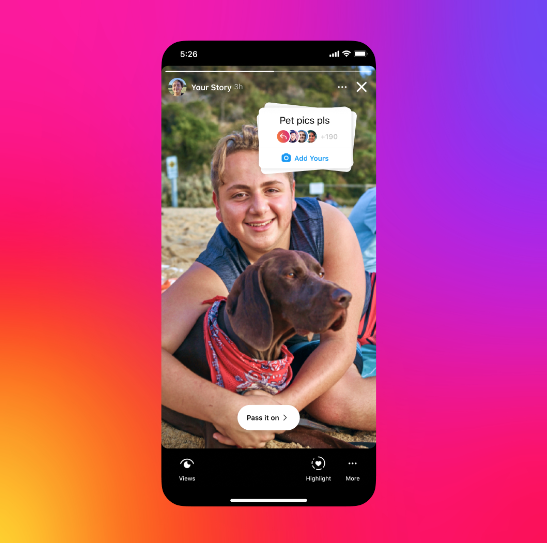
The 'Stories for Friends' feature on Instagram
Beyond being another quick way to collaborate with friends, if institutions get access to the same feature it could provide a new way for sourcing user-generated content, by prompting connections to submit their content for the potential of being featured on the university profile.
At this time, Instagram has confirmed they are testing the feature with selected users, but we expect to see it rolled out this year.
2. BeReal launches celebrity and brand accounts
The social media platform, loved by many for being unscripted and that little bit more natural and raw than other platforms, has introduced celebrities and brands accounts as of February 6, 2024.
They appear in the app labeled as verified accounts and marked as 'RealPeople' or 'RealBrands'.
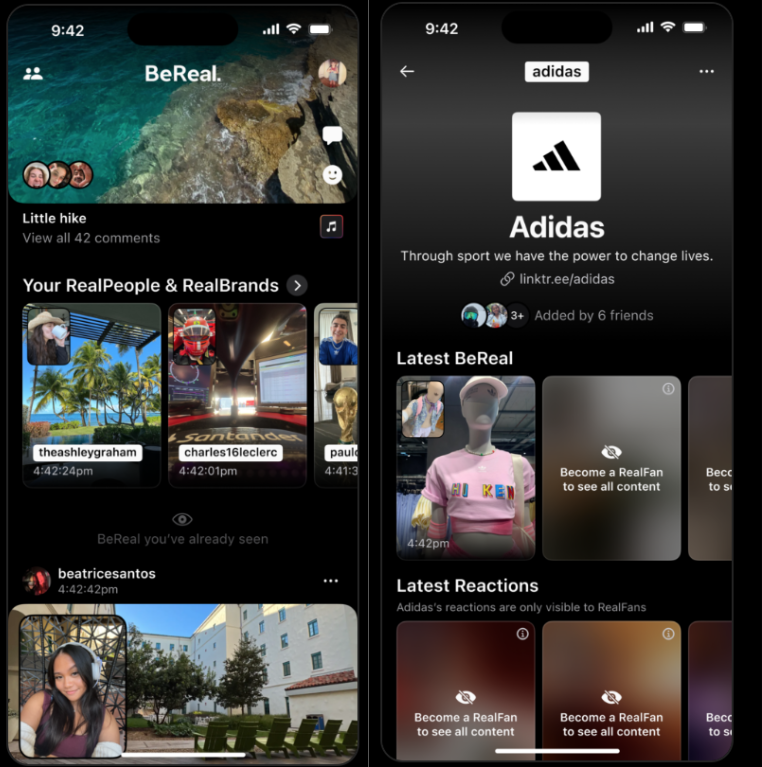 RealBrands and RealPeople accounts on BeReal
RealBrands and RealPeople accounts on BeReal
BeReal's CEO Romain Salzman said that users will discover what the biggest celebrities are doing behind the scenes at the exact same time as them.
Brands and celebrity accounts will need to follow the same rules and will have the same privileges as individual users.
The platform hopes that by applying the same boundaries, regular users will find commonality in their lives with those behind verified accounts, and authenticity will remain at the forefront.
3. Instagram to scrap 'Guides' feature
We usually talk about newly released features in the blog but this time we wanted to alert you to one that has recently been switched off. The 'Guides' function, originally launched in 2020, was turned off midway through December, with all existing Guides on profiles being converted to Collections.
Some institutions used the feature to highlight themed content and showcase more in-depth material but evidently, the feature hasn't been popular enough across the Instagram user base to retain it.
So if you had any Guides on your profile, it could be worth checking if they are now successfully in your Collections.
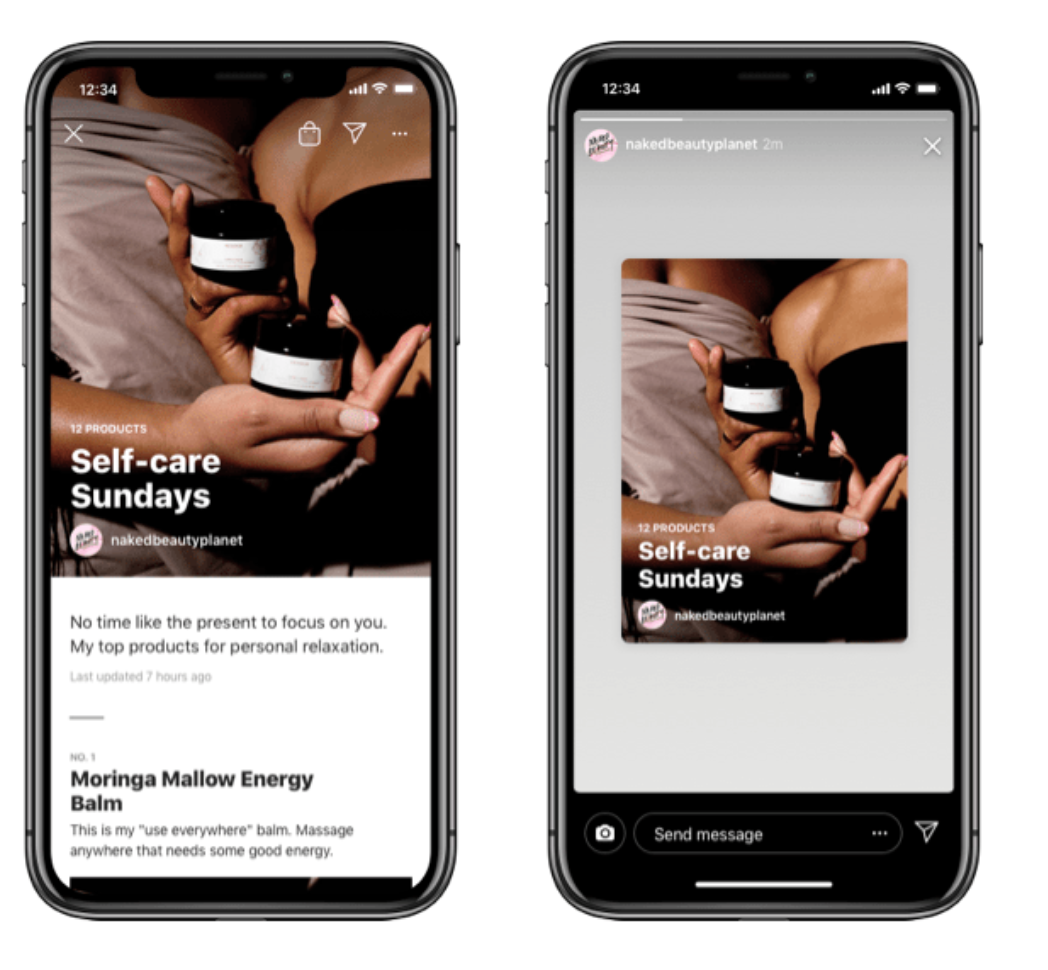
Instagram sunsets Guides, previously found on on Profile, Stories, and in DMs
4. Zuckerberg outlines plans for AI characters
In January, Meta CEO Mark Zuckerberg outlined plans for the next stage of generative AI within social media.
One of the use cases explained in his interview with The Verge was "a future in which virtual worlds are generated by AI and filled with AI characters that accompany real people."
He says a new platform is coming this year to let anyone create their own AI characters and distribute them across Meta's social apps.
The update comes off the back of Meta's announcement in late autumn that celebrity-influenced AI chatbot models would be launched, which you can interact with via Messenger, WhatsApp, and Instagram.

A possible chatbot AI-generated character?
As an aside, Meta also said that, soon, users would also be able to create their own chatbots, modeled on their own images and chosen styles, helping people to create custom AI characters that can respond in their own voice.
5. TikTok could be bringing blended in-app search to market with AI-facilitated results
TikTok may be close to launching a practical use for generative AI in its app following experiments in the wild with its Chinese sister app Douyin.
The AI search feature on the Douyin app sits alongside other search services such as products, group buying, users, and videos.
Users only need to include their questions or information in AI search and answers are gathered by the latest intelligent search technology.
What's new here is that the answers not only come from video content within Douyin, but also feature information from third-party websites, with links included for people to view more details.
With TikTok playing a greater role as a discovery tool, this AI search development could be one to watch this year.

TikTok's jumping into generative AI after testing it out on Douyin
6. X (Twitter) launches audio and video calls on Android
As of this month, audio and video calls are possible via X using Android devices, following the roll-out on iOS back in October last year.
As long as you're a paying user, you can leave audio or video messages as DMs.
Taken in isolation it's perhaps not groundbreaking. But this sits within Musk's 'everything' app vision for X, and is another step in facilitating more types of connections.
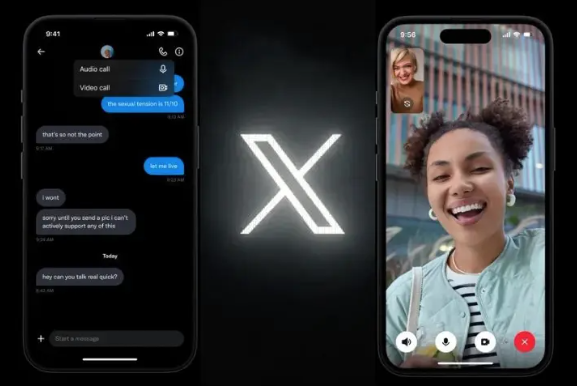
X introduces audio and video calls on Android
7. YouTube to launch thumbnail A/B testing
With many institutions investing in YouTube content, particularly short-form videos, a small update coming soon could be welcome for anyone involved in content creation.
YouTube is currently testing, and soon to release, a thumbnail testing option to allow you to run comparative tests of three thumbnail variants for each of your videos for up to two weeks.
The feature is designed to help you choose the best-performing images to improve video click-throughs and engagement.
8. Instagram Threads lets you hide like and share counts
In a small tweak to functionality, you can now select 'Hide like and share counts' when you post updates or as a default option for all posts in the app.
The feature could be useful if you don't want to publicize your engagement levels with competitors or simply want to let your posts do the talking without any additional engagement indicators presented to viewers.
9. Social media marketers using AI to improve campaign effectiveness
Social media is a data-rich area of marketing and we're hearing more about organizations using AI to get data out and into friendly, presentable structures.
If, for example, you supply ChatGPT with well-structured CSV files, it can give you charts back to present to stakeholders and to help analyze ROI opportunities you might otherwise have missed.
We're expecting this trend to continue with more and more people using AI to crunch data and present it in useable formats from their social media activity, particularly with OpenAI having released its much anticipated GPT Store.
10. Pinterest reports strong growth, particularly with younger audiences
Pinterest continues its steady user and revenue growth in its latest performance update.
The platform added 17 million active users last quarter, taking it to 482 million active monthly users in total.
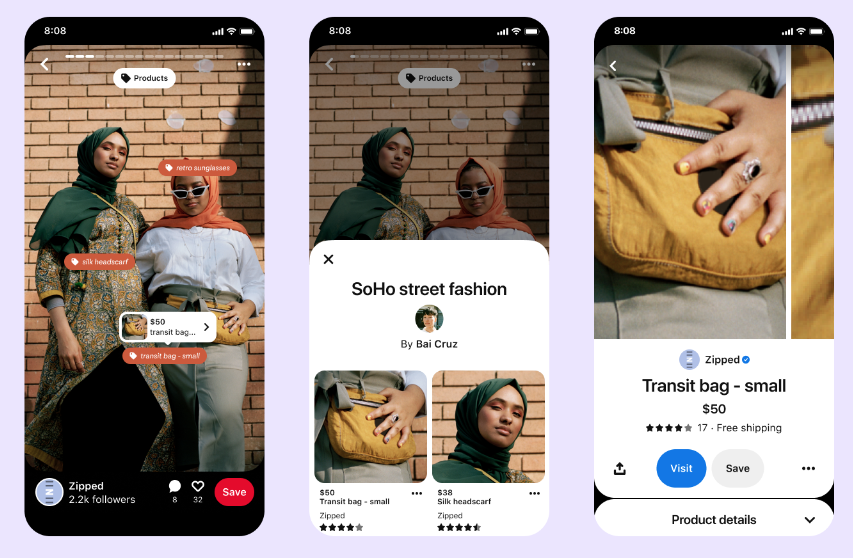
Catching our eye in their report is the fact that Gen Z users are the platform's fastest-growing and most engaged demographic.
Typically they save twice as much content in their first year on the platform compared to older demographics.
If your institution isn't yet on Pinterest now could be a good time to get onboard.
P.S. Meta will let EU users unlink their Instagram, Facebook, and Messenger accounts this year
Meta has announced this month that European users will soon be able to unlink their accounts and services ahead of the European new Digital Markets Act (DMA) coming into force in March.
The change means that users in the European Union will be able to use many of Meta's services without their information being shared between them.
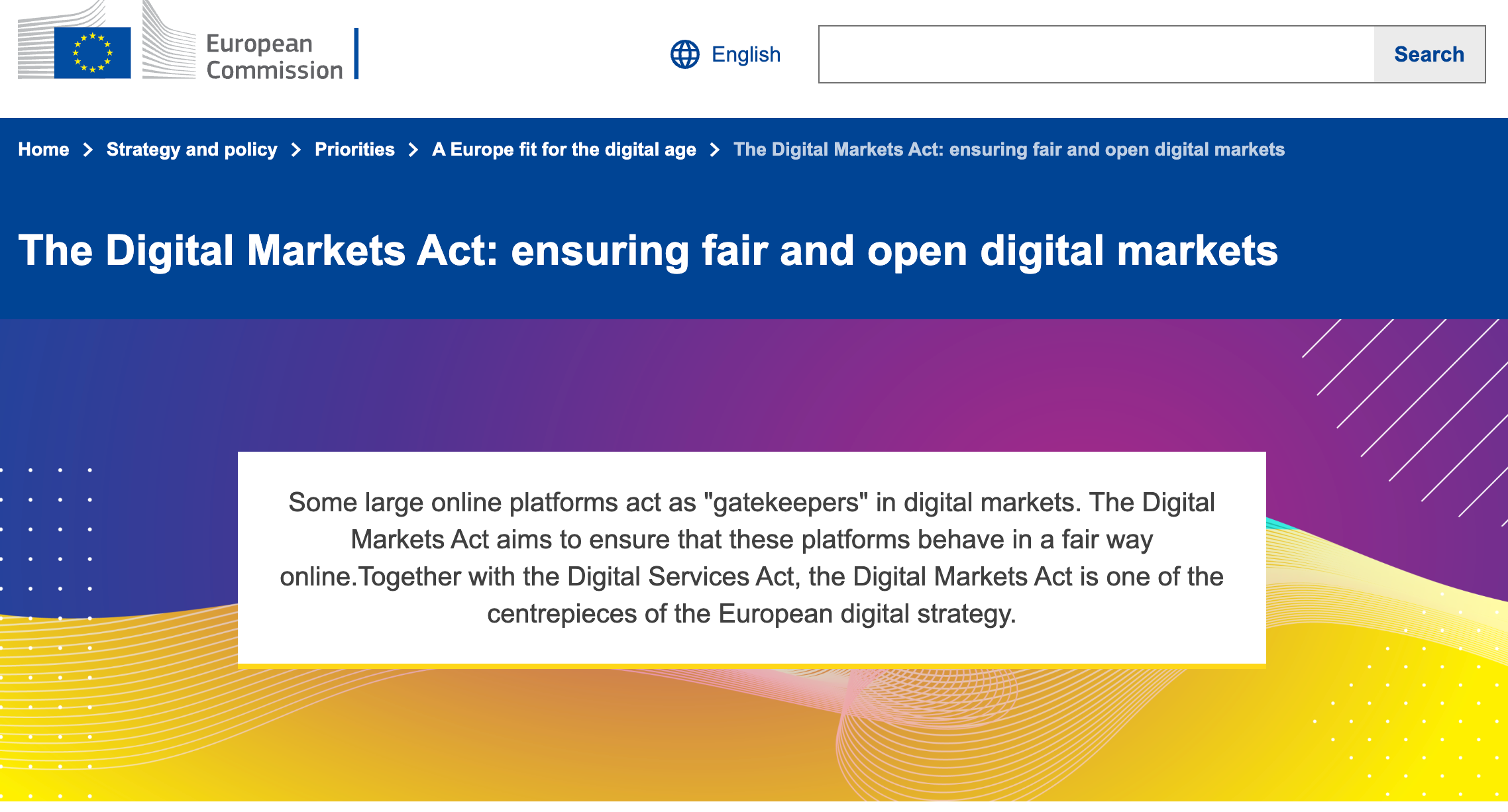 The DMA aims to regulate large online platforms, known as "gatekeepers"
The DMA aims to regulate large online platforms, known as "gatekeepers"
The DMA includes a broad set of rules designed to improve competition and level the playing field.
The measures include messaging services like WhatsApp and Facebook Messenger being made interoperable and Apple being forced to open up iOS to third-party app stores.
These seismic initiatives will be strongly opposed, we expect, by Meta and Apple, so watch this space.
Has your institution been impacted by any of the developments outlined in our round-up?
Reach out to the team, we'd love to hear more.

:format()//media/whats-new-higher-education-social-media-spring-2024-RQ.png)